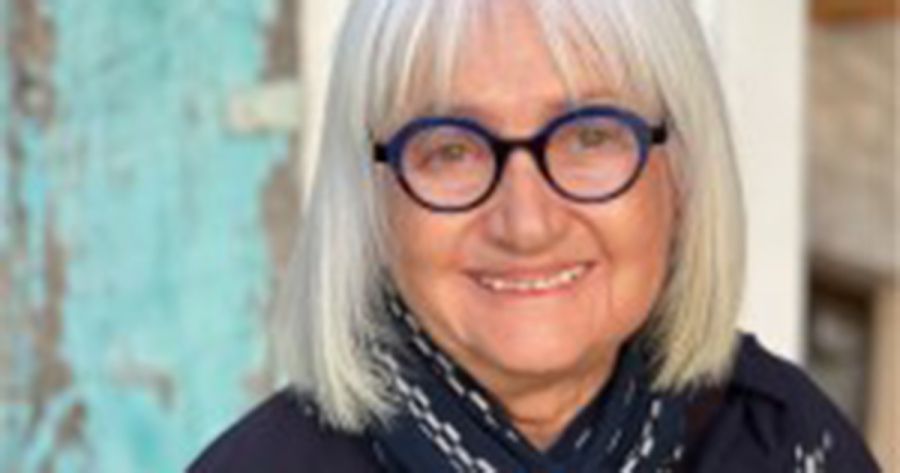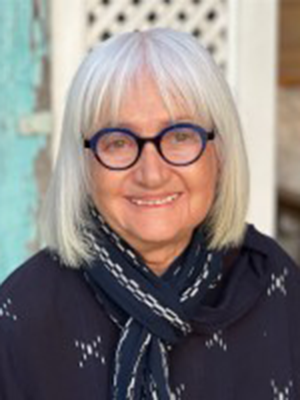
- Free Article: No
- Contents Category: Interview
- Custom Article Title: Publishers of the Month with Veronica Sumegi
- Review Article: No
- Article Title: Publisher of the Month with Veronica Sumegi
- Online Only: No
- Custom Highlight Text:
Veronica Sumegi and Andras Berkes-Brandl established Brandl & Schlesinger in 1994. Their initial aim was to publish books by authors of culturally diverse backgrounds and to publish translations. They also have a large poetry list and have published several literary journals. As Veronica frequently attended the Frankfurt Book Fair, many of their titles have been sold to overseas publishers. Approaching eighty years of age, Veronica believes she is now the oldest working publisher in Australia.
What was your pathway to publishing?
Without knowing it, my first step on this path was meeting Andras Berkes-Brandl in Hungary in 1989. After several years of complications, he migrated to Australia, and we married. Andras had worked as an editor-in-chief for one of the first post-communist publishing houses in Budapest. I was lecturing in the Department for Social Studies at UNSW and while I had no experience in publishing, I was an avid reader and collecting books was, and still is, my passion. We decided to start a publishing company together. With his experience in computing, and as his English was not yet proficient, Andras would take care of book production and I would look after the editorial side. I made it all up as I went along. We started with translations of well-known Hungarian books and very soon submissions began arriving. It was the mid-1990s and at that time, because most published books in Australia were by authors from Anglo or Irish backgrounds, we aimed to publish books by Australians with a multicultural background.
How many titles do you publish each year?
It varies, anything from five to twelve books. Some months we receive daily submissions and maintain about a ninety-eight per cent rejection rate.
Do you edit the books you commission?
No. I search for a suitable professional editor for each author. Hopefully it’s a match as they work together closely. The editor needs to be empathetic both to the work and the author. Editing is a long process, and I don’t have the time. A large percentage of our authors’ books have been shortlisted or have won major Australian literary awards.
What qualities do you look for in authors?
Although difficult to gauge initially, it is important for me to feel that the author and I will have a good working relationship. Most of our authors are in or have been in academia. They understand the process of writing as a profession and have usually completed multiple edits before submitting their manuscript. They are readers as much as writers and understand the importance of quality writing. I depend on my visceral response and, if the style and content of a manuscript excites me, I’m interested. Authors who have a sophisticated understanding of the media and the book trade have an advantage.
In your dealings with authors, what is the greatest pleasure – and challenge?
One of the greatest pleasures is that many of our authors have become close friends. This is particularly true when we have published two or more of their books over the years. Watching their literary careers flourish is a pleasure. As a small publisher we have a close collaborative and personal relationship with our authors. It helps that we publish books that would likely be rejected by multinational publishers. While we are enthusiastic about the titles we publish, our budgets are limited and regretfully we are unable to provide large advances. Often it is the author and I who do the PR rather than a publicity team.
Though it is invidious to ask publishers to name their favourite books, are there one or two books you are especially proud to have published?
I love most of our titles, however, Jacob G. Rosenberg’s East of Time is a particular favourite. It won six Australian literary awards and has not become aged or ‘dusty’ since we first published it in 2005. It still sends shivers up my spine, and I regard it as an enduring classic. I am also proud of John Forbes’s Collected Poems (2002). Although he died at forty-seven, Forbes has had a long-lasting and significant influence on Australian poetry. We have reprinted his Collected Poems five times.
Do you write yourself? If so, how has it informed your work as a publisher?
I have too much respect for good writing to write myself! Generally, it is difficult to be a significant author and a publisher at the same time. The exceptions that prove this rule were, of course, Virginia and Leonard Woolf at Hogarth Press.
What kinds of books do you most enjoy reading?
Non-fiction, usually based on social and cultural history, or memoirs, books on writers, and re-readings of the classics. If I am interested in a subject, I will read many books about it. Some genres, such as crime and science fiction, no longer interest me. Perhaps because I am getting old, neither do ‘mass market’ books, romance, or misery lit. With fiction I relish books that add something to my understanding of the world. Every now and then beautiful prose overwhelms me, leaving me in awe of the author’s skill.
Which editors/publishers do you most admire?
I admire the literary and non-literary fiction and the translations of Farrar, Straus and Giroux whose many authors have won the Nobel Prize for Literature. Grove Press (or Grove Atlantic as it is now known) has a most impressive list of books, as has New Directions. Currently, Pushkin Press publishes many translations by European authors. Of course, my admiration is high for the old UK publishers such as Hogarth Press, Chatto & Windus, Faber & Faber, and for early Penguin Books (the orange and white paperbacks). Picador in the 1960s and 1970s published exciting new fiction and Canongate in Scotland is currently a very ‘cutting edge’ publisher.
What advice would you give an aspiring publisher?
Although I started our publishing company with no experience, this may now be more difficult as there is much new and changing technology to learn. The Australian Publishers Association and the Small Press Network offer courses and workshops in publishing. I suggest work experience in a small or large publishing company. Apart from technological experience, a degree in humanities is beneficial. Working in a bookshop gives one a good understanding of the industry. Reading extensively and widely is essential.
How significant, in a protean age, are book reviews?
There are so many changes and innovations in the ways one can now access books and literature – from printed books, e-books, audio books and even via social media. There are far too many books published. It is difficult to keep up with what is available. For this reason, book reviews are important. Unfortunately, the number of reviews is limited compared to the number of books published but they definitely help the potential reader discriminate.
In a highly competitive market, is individuality one of the casualties?
On one hand there may be a desire for authors to conform to what book genres dominate in the market and what they perceive as a ‘big’ seller. However, I believe that small publishers still look for innovation and difference in their publications as the only way to survive in the market rather than trying to emulate the large publishing houses.
What’s the outlook for new writing of quality?
In the digital age there are more options for authors to get published. Yet it is small independent publishers who are striving to keep quality and innovative writing alive.



Comments powered by CComment